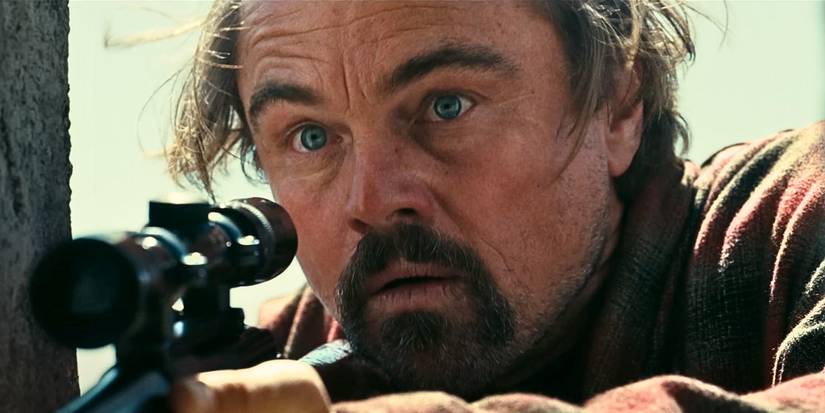Paul Thomas Anderson’s latest film, One Battle After Another, has already received acclaim from some of the biggest media stars. Oscar-winning director Steven Spielberg called the film “incredible,” and Taylor Swift praised the film’s score and cast while promoting her album, The Life of a Showgirl, on The Tonight Show with Jimmy Fallon. The film — which stars Leonardo DiCaprio, Chase Infiniti, Benicio del Toro, and Sean Penn — has also grabbed the attention of self-proclaimed conservative outlets that condemn the movie.
The film focuses on Bob Ferguson, former member of the French 75 rebellion group, and his daughter, Willa Ferguson. In his prime, Bob Ferguson fought alongside the French 75 members to protect immigrants from being deported by the government. Political writers and personalities like Ben Shapiro took offense at the type of rebellious activism depicted in the movie and shared their critiques on the internet. That doesn’t stop One Battle After Another from being one of the best films of the year, according to MovieWeb critic Julian Roman, especially when some of the complaints don’t make sense.
Conservative Outlets Decry “Left-Wing” Politics in Anderson’s Latest
Ben Shapiro, editor-in-chief of Daily Wire, had some harsh words about One Battle After Another, starting his review by saying, “Not good, do not like, bad.” Although he gave the film some praise, particularly for Jonny Greenwood’s score and Leonardo DiCaprio’s and Teyana Taylor’s acting, he was much harsher when it came to the film’s politics. “Revolutionaries, what they really do is they fight the system in order to allow unchecked migration into the United States,” Shapiro says, describing the film. “Why? Because they need to defeat white nationalism, white Christian nationalism. That’s the basic politics of the film.” Shapiro ended his review saying that the film will “win all the Academy Awards because this is what Hollywood wants: left-wing agit prop from high-power directors.”
Armond White of National Review writes that “[w]hat’s meant to be entertaining is actually callous, dishonest, and reprehensible.” Later in his review, White writes, “It’s a macabre coincidence that One Battle After Another opens so soon after the assassination of peaceable conservative debater Charlie Kirk. The film undeniably romanticizes political assassination.” Charlie Kirk was shot in the neck at an event at Utah Valley University on September 10.
David Marcus, a columnist for Fox News Digital, wrote an opinion piece condemning the film. In his article, Marcus compared the film’s protagonists to one of history’s most-hated groups, writing, “Imagine a movie about World War II in which you are meant to be cheering for loveable Nazis.” He continues, “What is missing here is even the slightest bit of nuance about the necessity to kill people, including innocents, in order to topple Anderson’s weird and paranoid version of the American government.”
Did These Analysts Watch the Same Movie as Audiences?
It feels like the people getting mad over One Battle After Another didn’t even watch the right movie. The film does not end well for most of the characters that these reviews describe as “violent.” Many members of the French 75 are killed, forced to flee the country, or captured by the military. The film’s villain, Sean Penn’s Colonel Steven J. Lockjaw, has almost no redeeming qualities, as he blackmails a character into having sex with him, tries to join a white supremacist group, and attempts to kill his own daughter. He doesn’t represent the whole government, but he does demonstrate the government’s ability to protect and give power to these kinds of people. Viewers complaining that he’s the villain might want to take a second look at their own morals and ideas.
Some of these analysts seem to be drawing ties just to try to spark outrage over One Battle After Another, and it’s not even working. One Battle After Another was filmed in early 2024, a year before Donald Trump was sworn in as the 47th president, so trying to paint the film as a direct critique on the current administration is a fool’s errand. The majority of viewers don’t seem to have the same critiques as people like Ben Shapiro and Armond White; on Rotten Tomatoes, the film holds a 95% approval rating from critics and an 85% approval rating from audiences. Even the United Kingdom magazine Premier Christianity wrote in its review that Shapiro was wrong about the film, saying, “Detractors of the film will want to dismiss this as woke nonsense, or dangerously stoking the flames… But that is to wilfully misread it, even at face value, when there is a lot more going on beneath the surface.”
Even if the film is inciting audiences to rebel against white nationalists, why is that so bad? Americans have fought for racial equality for decades, and allowing white nationalists like Colonel Lockjaw to have power would counteract that progress. The United States of America was founded through the colonies’ rebellion against the British, so decrying the French 75 doesn’t make much sense. Rebellious main characters certainly aren’t new to movies either. One of the longest-stretching film series of all time, Star Wars, started with a film about rebels destroying the tyrannical government, as an allegory for what was happening in Vietnam. The film’s detractors shouldn’t stop anyone with an interest in One Battle After Another from watching the film, as it’s better for viewers to engage with the film themselves than basing their opinions on what someone on the internet has to say.

- Release Date
-
September 26, 2025
- Runtime
-
162 minutes
- Producers
-
Adam Somner


